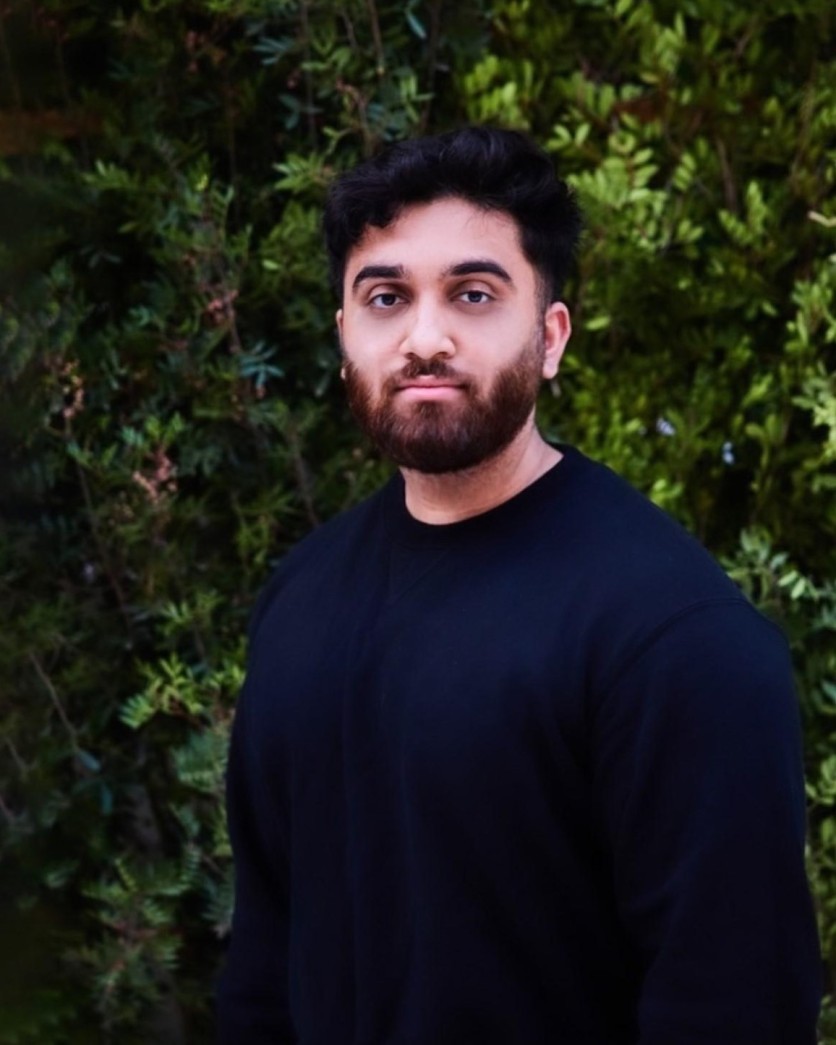
In recent years, the gaming industry has struggled to keep up with player satisfaction within the gamer community. As more and more modern games sacrifice playability for profitability, the challenges to maintaining a consistent user base continue to grow. Traditional business structures in gaming, like Free-to-Play (F2P), continue to hurt the reputation of authentic developers.
Maitham Mohamed, Co-Founder and CEO of Material10, a gaming company pushing the boundaries of multiplayer gaming by combining a new competitive gameplay experience with innovative economic models, recognizes these issues all too well.
He believes his gaming studio has a solution: a new business model driven by an open economy. Open economies in multiplayer games are systems where players can freely trade in-game assets and currencies, potentially driving meaningful economic systems within the game. Material10 is introducing a new business model driven by a player-driven open economy as an alternative to F2P.
Meet Maitham Mohamed: The Brains Behind Material10
Like many children, Maitham was a gamer growing up. He spent much of his childhood playing video games, and the more he played, the better he became. It didn't take long for Maitham to develop a competitive edge in the gaming community and seek out opportunities that could provide him with additional knowledge and insight.
From FIFA to Entrepreneur
At ten years old, Maitham got really deep into FIFA Ultimate Team.
After purchasing the full game, his parents wouldn't give him money for in-game microtransactions. So, he taught himself to trade within in-game player markets to earn the coins he needed to buy his favorite players. He made millions of coins in volume, arbitraged different players, invested in some, and ran bots to scalp "fat finger sells." This ultimately served as his gateway and built an intuitive understanding of "open economy gaming."
During the rise of Play-to-Earn (P2E) games like Axie Infinity, Maitham observed what did and didn't work for many P2E projects. He brainstormed other systems that could potentially work instead when he realized that many of them weren't sustainable.
Before starting his own gaming startup, he spent some time in corporate finance and investment banking. Shortly after that, he shifted into tech, doing product work with Amazon before transitioning into startups.
Maitham's potential has been noticed, and he was recently featured in the Forbes "30 Under 30 Europe, Sports & Gaming" and "Youngest" lists.
Glitches in the Gaming Industry
F2P gaming has faced many persistent challenges since the early 2010s and was a major innovation that has slowly, over the decade, become increasingly predatory as publishers try to maximize profits, creating an imbalance. Many F2P games implement aggressive and sometimes predatory microtransaction systems to maximize profits, along with gating content behind paywalls, which ultimately ruins the experience for players who don't spend as much as others.
Prioritizing profits over good design can lead to less engaging and more frustrating gameplay. For example, to obtain rare items with unique advantages, the game might require players to simply start "grinding" or pay money to progress meaningfully. This can organically lead to a decline in motivation for the player.
Curing the Code: Maitham and Material10's Master Plan
Maitham hopes Material10 could be the answer to the growing issues in the gaming industry. After raising a combined $2M+ from Blockchain Founders Fund, Big Brain Holdings, GSR, Trousdale Ventures, Monoceros, and other leading investors, Material10 is well-equipped to reshape the gaming world.
Boasting an extraordinary team, including the former CEO of Trion Worlds and the former Game Director of the Assassin's Creed series, the team is working to revolutionize the industry and provide a fresh experience for gamers.
In other words, Material10 is changing the game—and gameplay! Their avant-garde approach aims to offer in-game items free of charge while monetizing by placing a small tax on player-to-player (P2P) trades. Maitham and his team believe this business model is the right way forward and will both solve the core problems with F2P gaming and unlock the next era of growth for gaming.
Currently, Material10 is working on a shooter called Project Fallen, a game that allows players to control multiple squads from a Third-Person Shooter (TPS) perspective. The game's standout mechanic involves hot swapping between squads while simultaneously utilizing a drone mode (RTS-lite). The RTS-lite influences players to accomplish calculated strategies and movements.
On top of that, the game introduces a brand-new business model, where there will be no direct selling to players. Giving away in-game items for free will serve as a form of primary monetization alongside the aforementioned taxing P2P trades, which will act as a secondary monetization method. This structure will allow players to easily use in-game mechanics and features that would otherwise warrant supplemental expenses in standard F2P gaming.
In a Nutshell
As systems and strategies evolve, Maitham Mohamed has set his sights on transforming Material10 into a front-running next-gen developer and publisher for the modern gaming industry. He wants to create multiplayer games that are not only engaging but also break the barriers of traditional gaming systems.
While he envisions and explores these new economic models for his company, his main goal is an enhanced experience for both players and developers.
ⓒ 2025 TECHTIMES.com All rights reserved. Do not reproduce without permission.





